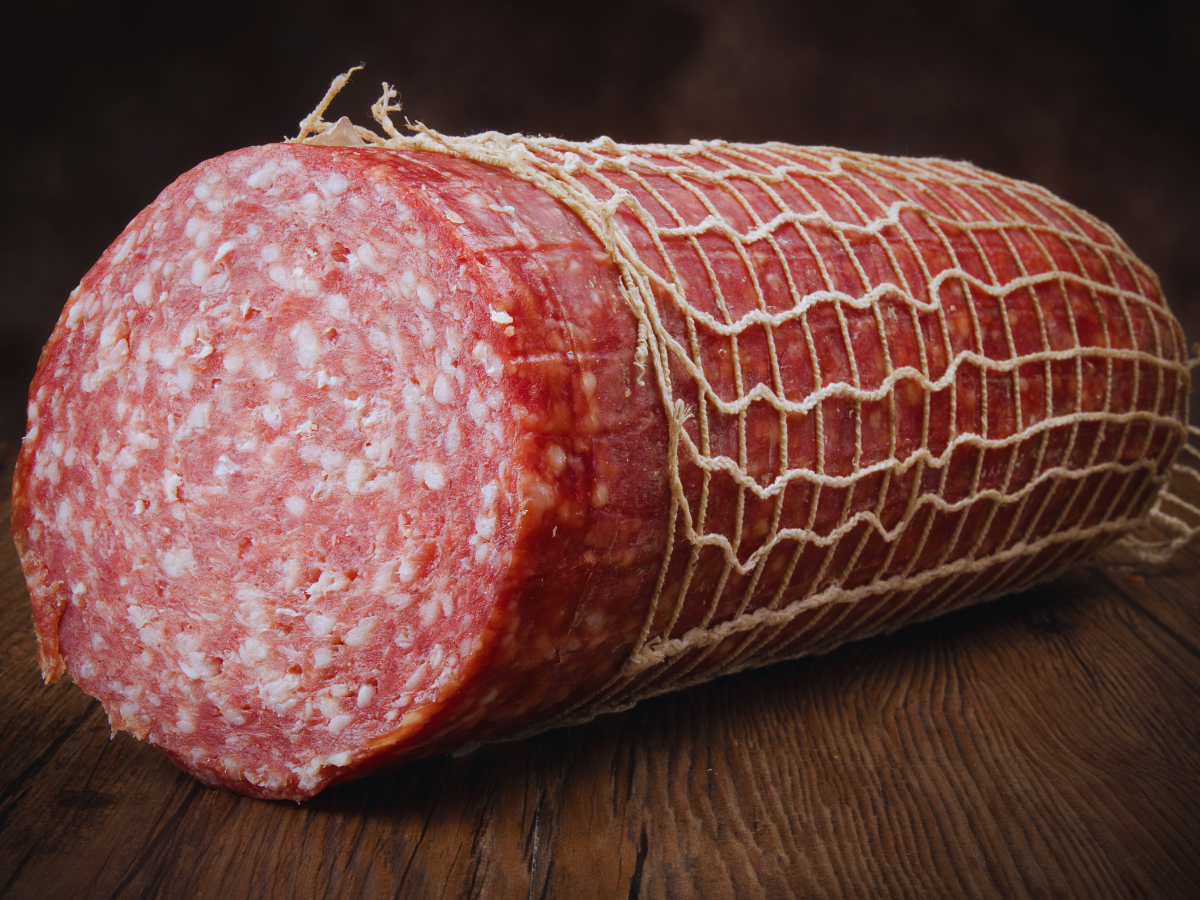
Meat fermentation is a traditional preservation method that enhances flavor and safety. By using beneficial bacteria, this process breaks down proteins and fats, creating unique tastes and textures. Fermented meats, like salami and prosciutto, are rich in probiotics, promoting gut health while offering a delicious culinary experience.
Meat fermentation is an ancient preservation technique that enhances the flavor, texture, and nutritional value of meat. For carnivore diet enthusiasts, incorporating fermented meats can add variety and depth to their dietary regimen. This article explores the process of meat fermentation.
This article is for:
- Carnivore Diet Enthusiasts: People already following or considering the carnivore diet looking to diversify their food options.
- Health and Wellness Seekers: Individuals exploring different dietary approaches to achieve optimal health and well-being.
- Food Preservation Enthusiasts: Those interested in traditional and modern preservation techniques.
- Home Cooks and Food Lovers: Individuals who enjoy preparing their own food and experimenting with new recipes.
- Healthcare Providers: Professionals seeking to provide informed advice to patients about the carnivore diet and meat fermentation.
- Nutrition Researchers: Experts analyzing the impact of diet on overall health and well-being.
Beneficiaries
- Individuals with Dietary Restrictions: Who need to manage symptoms through a strict animal-based diet.
- People Seeking Simple Recipes: Those who appreciate easy-to-make and nutritious meal options.
- Anyone Interested in High-Quality Kitchen Tools: Those who want to improve their cooking techniques and efficiency.
- Mental Health Seekers: Those looking to improve cognitive function and emotional well-being through dietary changes.
Understanding Meat Fermentation
Meat fermentation is the process of preserving meat by allowing beneficial bacteria to convert sugars and proteins into lactic acid and other compounds. This process not only extends the shelf life of the meat but also enhances its flavor and nutritional profile.
Key Features of Fermented Meat:
- Improved Flavor: Fermentation enhances the taste of meat, adding complex, tangy flavors.
- Extended Shelf Life: Fermented meats can be stored for longer periods without spoiling.
- Enhanced Nutrition: Fermentation increases the bioavailability of nutrients and introduces beneficial probiotics.
- Safer Consumption: The acidic environment created by fermentation inhibits the growth of harmful bacteria.
Finding Information and Support
To successfully ferment meat, sourcing high-quality information and support is essential. Here are some suggestions:
- Books and Online Resources: Books by fermentation experts provide in-depth knowledge and practical guidance on meat fermentation.
- Cooking Classes: Take classes that focus on meat preservation and fermentation techniques.
- Support Groups: Online forums and social media groups dedicated to the carnivore diet and fermentation can offer community support and shared experiences.
Local and Online Resources
- Local Grocery Stores and Butcher Shops: For purchasing fresh, high-quality meat.
- Online Retailers: Amazon and other platforms for buying fermentation tools and necessary supplies.
Best Times to Start Meat Fermentation
- Health Resets: When seeking dietary changes to address specific health concerns.
- Seasonal Changes: Fermenting meat during cooler months can be beneficial due to lower ambient temperatures.
- After Consultation: Once you have discussed the fermentation process with a healthcare provider and determined it’s suitable for you.
- Regular Monitoring: Continuously monitor your fermentation batches to ensure proper development and safety.
Benefits of Meat Fermentation on the Carnivore Diet
- Flavor Enhancement: Fermentation adds depth and complexity to the taste of meat.
- Nutritional Benefits: Fermentation increases the bioavailability of nutrients and introduces beneficial probiotics.
- Extended Shelf Life: Fermented meats can be stored for longer periods without spoiling.
- Digestive Health: The probiotics in fermented meats can support gut health.
- Culinary Variety: Adds diversity to the carnivore diet, preventing monotony.
Steps to Ferment Meat
- Choose Your Meat: Select high-quality, fresh meat from a trusted source. Beef, pork, and poultry are common choices for fermentation.
- Prepare the Meat: Cut the meat into appropriate sizes for fermentation. Ensure it is clean and free from any contaminants.
- Create a Brine or Dry Cure: Mix salt and any desired spices to create a brine or dry cure. This will help inhibit the growth of harmful bacteria and promote beneficial fermentation.
- Apply the Cure: Rub the dry cure onto the meat or submerge the meat in the brine. Ensure it is evenly coated.
- Fermentation Environment: Place the meat in a fermentation chamber or container that maintains a consistent temperature and humidity level. Ideal conditions are typically around 50-60°F with high humidity.
- Monitor the Process: Regularly check the meat for any signs of spoilage or unwanted mold. The fermentation process can take anywhere from a few days to several weeks, depending on the type of meat and desired flavor.
- Taste and Adjust: Once the meat has reached the desired level of fermentation, taste a small piece. If it is to your liking, it is ready to be stored or consumed.
- Storage: Store fermented meat in a cool, dry place or refrigerate it to extend its shelf life.
Trending Now
Electric Food Dehydrator
For those looking to perfect their meat fermentation process, consider the Electric Food Dehydrator. This high-quality dehydrator ensures a controlled environment for meat fermentation, making your culinary endeavors more precise and effective.
Benefits:
- Adjustable Temperature Settings: Allows for precise control over the fermentation process.
- Spacious Trays: Multiple trays provide ample space for fermenting large batches of meat.
- Even Airflow: Ensures consistent fermentation by distributing air evenly across all trays.
Usage: Use the Electric Food Dehydrator to maintain a controlled environment for fermenting meat.
Incorporating meat fermentation into your carnivore diet can significantly enhance your culinary experience. By providing a method to preserve meat, enhance its flavor, and boost its nutritional value, meat fermentation offers a unique and beneficial addition to your dietary regimen. Understanding and implementing proper meat fermentation practices can add variety to your diet and make your carnivore journey more enjoyable.
At CarnivoreDaddy.com, we believe in the transformative power of the carnivore diet and the importance of making informed dietary choices. By following the insights and practical tips provided in this guide, you can confidently incorporate meat fermentation into your meal planning. Consider adding the Electric Food Dehydrator to your kitchen tools to ensure precise and effective meat fermentation. Join us as we explore different dietary lifestyles and provide you with the support and guidance you need to succeed.
In the Spotlight

Carnivore Cure is the first elimination protocol to explain how to adopt a meat-based diet to bring about healing.
READ MORE
- The “Meat Monk” Routine: A Minimalistic, Monk-Style Daily Schedule Built Around Beef and Meditation
- Junk Food Jailbreak: Carnivore Keys to Freedom
- Pregnancy and the Carnivore Diet: Is It a Good Idea?
- When Is It Time to Stop Listening to Carnivore Influencers?
- Why the Carnivore Diet Differs From Location to Location: Why There Is No One-Size-Fits-All Rule
Subscribe to our newsletter!